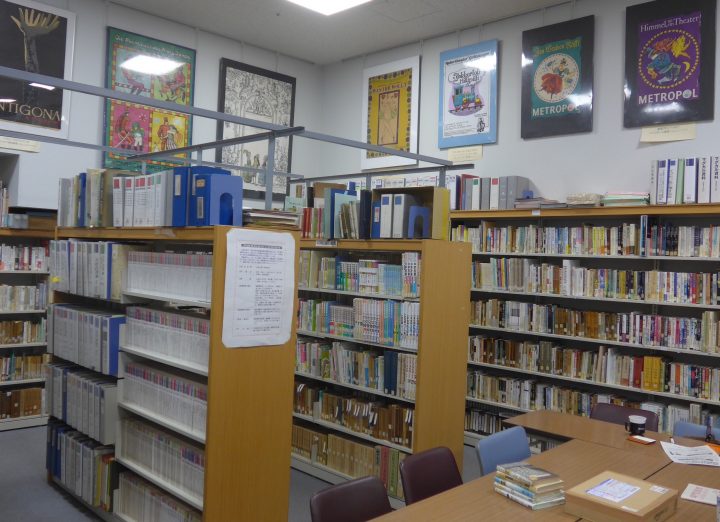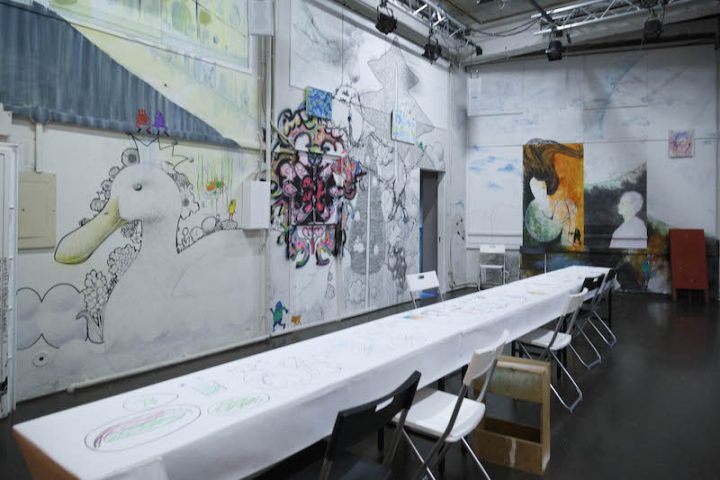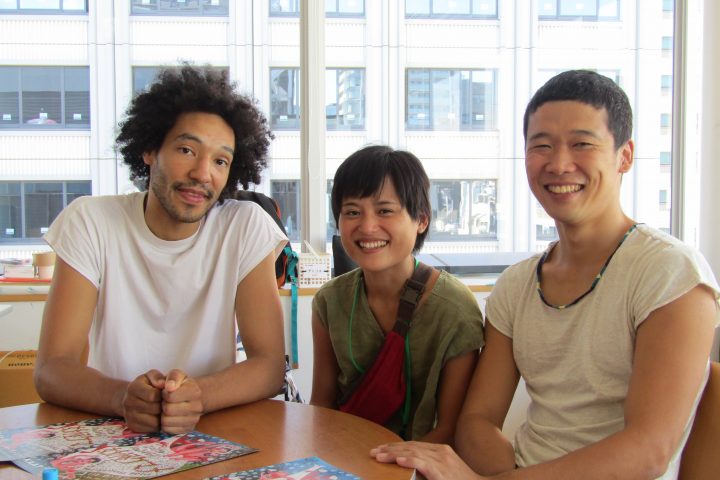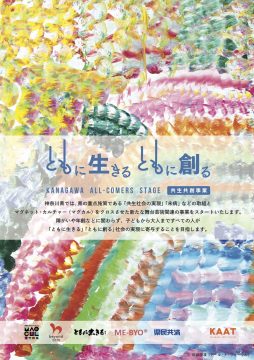An interview with Yusuke Kitazawa, supervisor of Shiki Theatre Company's "The Phantom of the Opera"
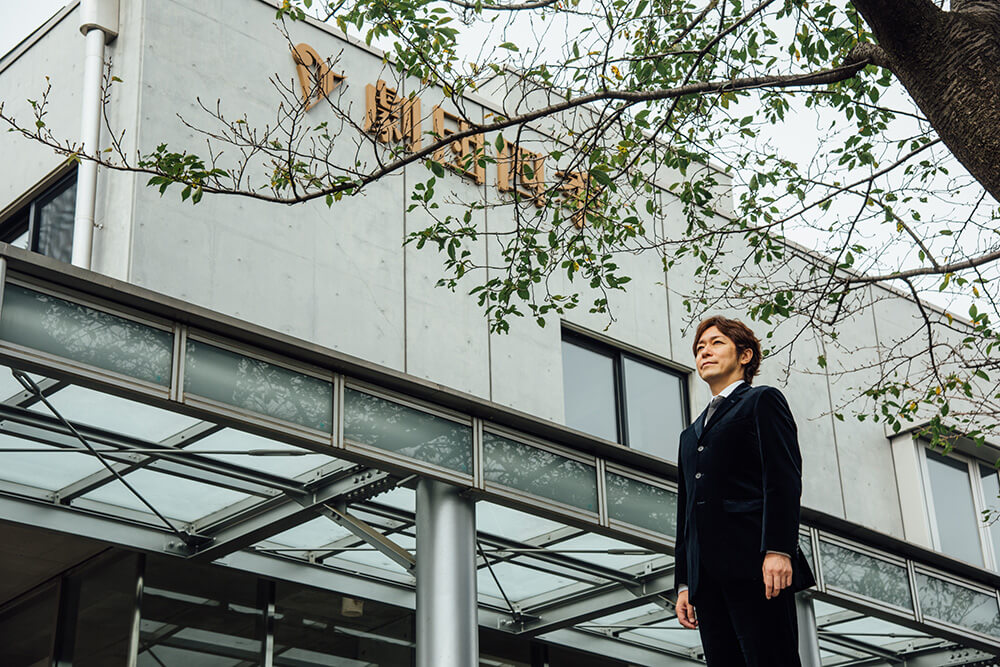
--The Phantom of the Opera is a global hit musical. Since its premiere in 1988, it has been performed in Japan more than any other musical, second only to The Lion King and Cats, making it a representative work of the Shiki Theatre Company. I heard that your debut was in The Phantom of the Opera, too?
Kitazawa : Yes, actually. What's more, it was when I saw "The Phantom of the Opera" while I was a music college student that I became interested in musicals and wanted to join the Shiki Theatre Company.
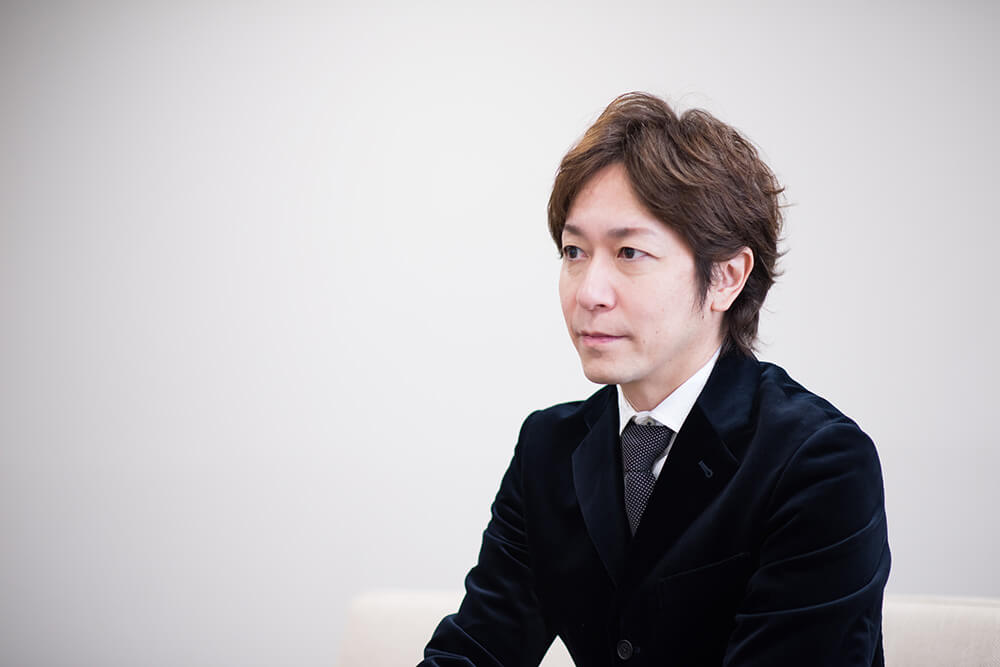
--This work was a turning point in Kitazawa's life.
Kitazawa: That's right. I studied classical vocal music, so I thought musicals were a completely different field. But when I saw Shiki Theatre Company's "The Phantom of the Opera," the first thing that struck me was the wonderful music. The play is set in the Paris Opera, so there are operas within the play, which made it feel closer to me, and there were many catchy songs that were different from operas, which was interesting. I immediately bought the soundtrack CD and listened to it every day. The story was moving, and I was amazed, thinking, "Musicals are wonderful, and Shiki Theatre Company is amazing!"
--The Phantom of the Opera, which we all remember so fondly, is the story of the Phantom, an ugly monster who lives in the basement of the Paris Opera House, Christine, a singer whom the Phantom falls in love with and raises with great care, and Raoul, Viscount de Chagnon, who has a fateful reunion with Christine and falls in love with her.
Kitazawa: Yes. The Phantom is a genius with a talent for composing music, but people around him call him ugly, so he locks himself away in the basement of the Opera House. Then, he falls in love with Christine, a chorus girl at the Opera House, and secretly trains her in singing, feeling his love for her. She grows rapidly, and when the lead soprano in an opera gives up on the performance, she is suddenly selected as the replacement. However, Christine falls in love with Raoul. The Phantom becomes mad with jealousy... That's the story.
--It's a very mysterious and dramatic love story. Kitazawa-san, what do you find most fascinating about this story?
Kitazawa : It's the Phantom's sad life. He loves Christine with all his heart, but it's a painful unrequited love. I played Raoul, but the character I empathized with the most was actually the Phantom. Even as an audience member, I was in tears at the Phantom's sorrow at the last scene.
--I get the impression that musicals are mostly female fans, but it seems to move men's hearts as well.
Kitazawa : We all have times when the person we love doesn't look back at us, right? That kind of real emotion really feeds back into "The Phantom of the Opera." I think that especially in the last scene, everyone will be overlapping with their own thoughts of "what is love?" As a cast member, of course, but when I'm involved in this production as a supervisor, I also tell the actors to cherish the emotion of the last scene.
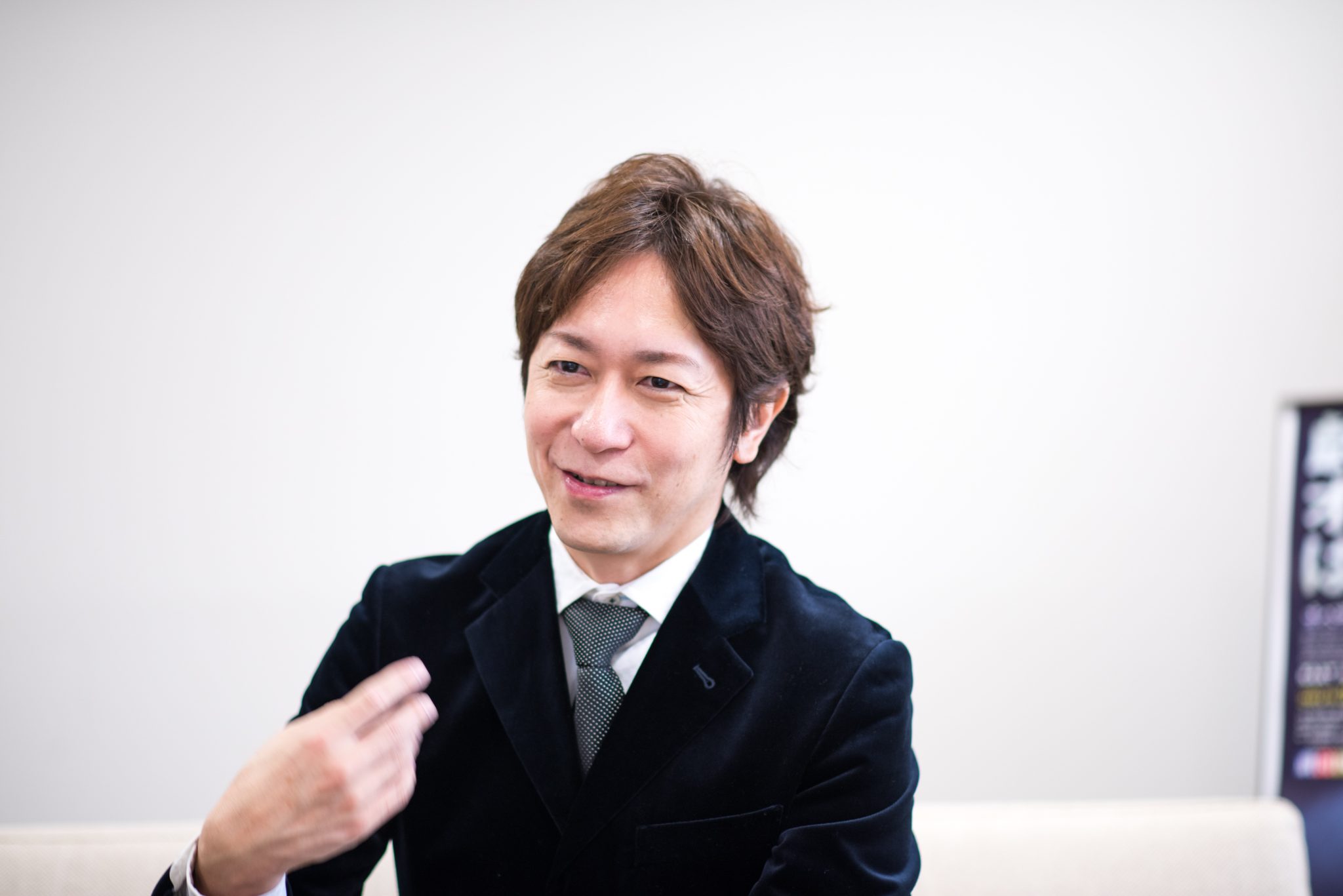
--In addition to the drama, the wonderful music that moved you is also a big attraction. The composer Andrew Lloyd Webber also worked on "Cats" and "Jesus Christ Superstar," and is said to be the modern-day Mozart.
Kitazawa : Andrew Lloyd Webber has a deep knowledge of classical music, so the music in "The Phantom of the Opera" is very high quality. There are many numbers that are fun to sing and listen to, requiring advanced musical techniques. The Phantom's solo number "Music of the Night", the familiar title role "Overture", the duet "All I Ask of You" sung by Raoul and Christine at the end of Act 1, and "Masquerade" at the beginning of Act 2 are all great songs. As the story is set in an opera house, there are songs that deliberately resemble the tunes and situations of famous operas as plays within the play, making it a work that music lovers will love.
--Kitazawa-san, you even listened to the soundtrack thoroughly!
Kitazawa : That's right (laughs). Other musicals also have some representative songs that are known as "this song is the best for this production!", but "The Phantom of the Opera" is full of masterpieces. There are many major songs that everyone has heard. Another feature is that the play is smoothly told through the songs. The lines are also spoken through the melodies, making it a very orthodox grand musical.
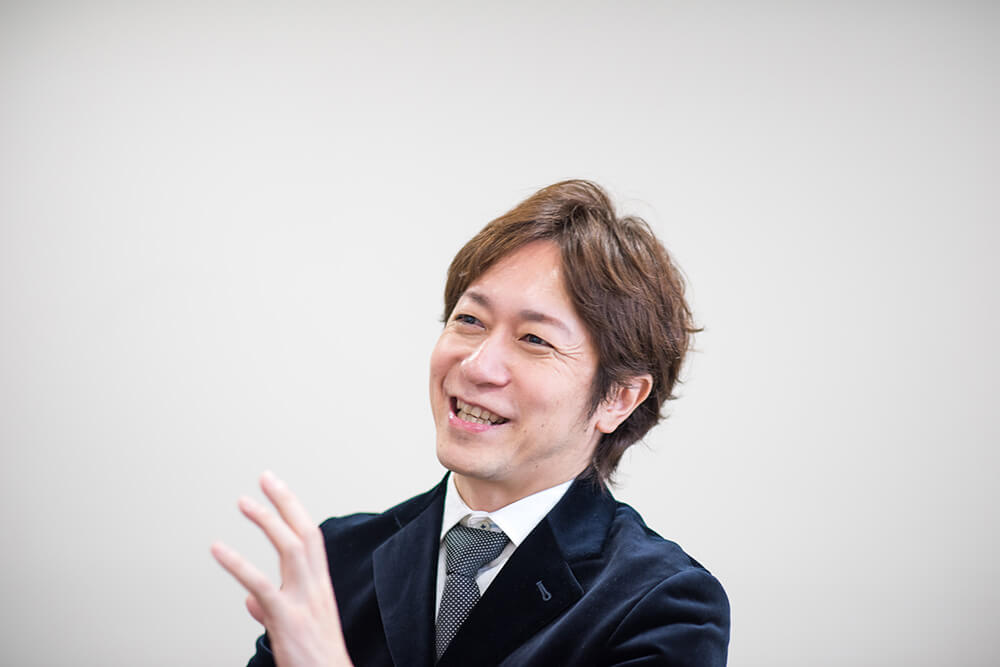
--The lavish stage design, which recreates the Paris Opera House, is also a highlight.
Kitazawa : I think the first thing that catches your eye when you enter the theater is the frame-like proscenium arch that surrounds the stage. The golden statues are very luxurious, and the large chandeliers are wonderful. The scenery is comparable to that of a real opera house, so sometimes I wonder, "Where am I? Is this really Japan?" (laughs). The drapes and costumes are also carefully maintained and are the ones from the premiere, made of luxurious fabrics and elaborately designed. I'm sure you can feel the weight of "The Phantom of the Opera" there as well.
--The costumes, which represent 19th century Europe, are also beautiful.
Kitazawa : Yes, really. For actors, costumes are especially important in terms of how they feel about playing a role. The costumes for "The Phantom of the Opera" are very difficult to change quickly in and are heavy, but they are also very realistic and heavy, with no compromises. We who wear them also feel the authenticity and stand up straight.
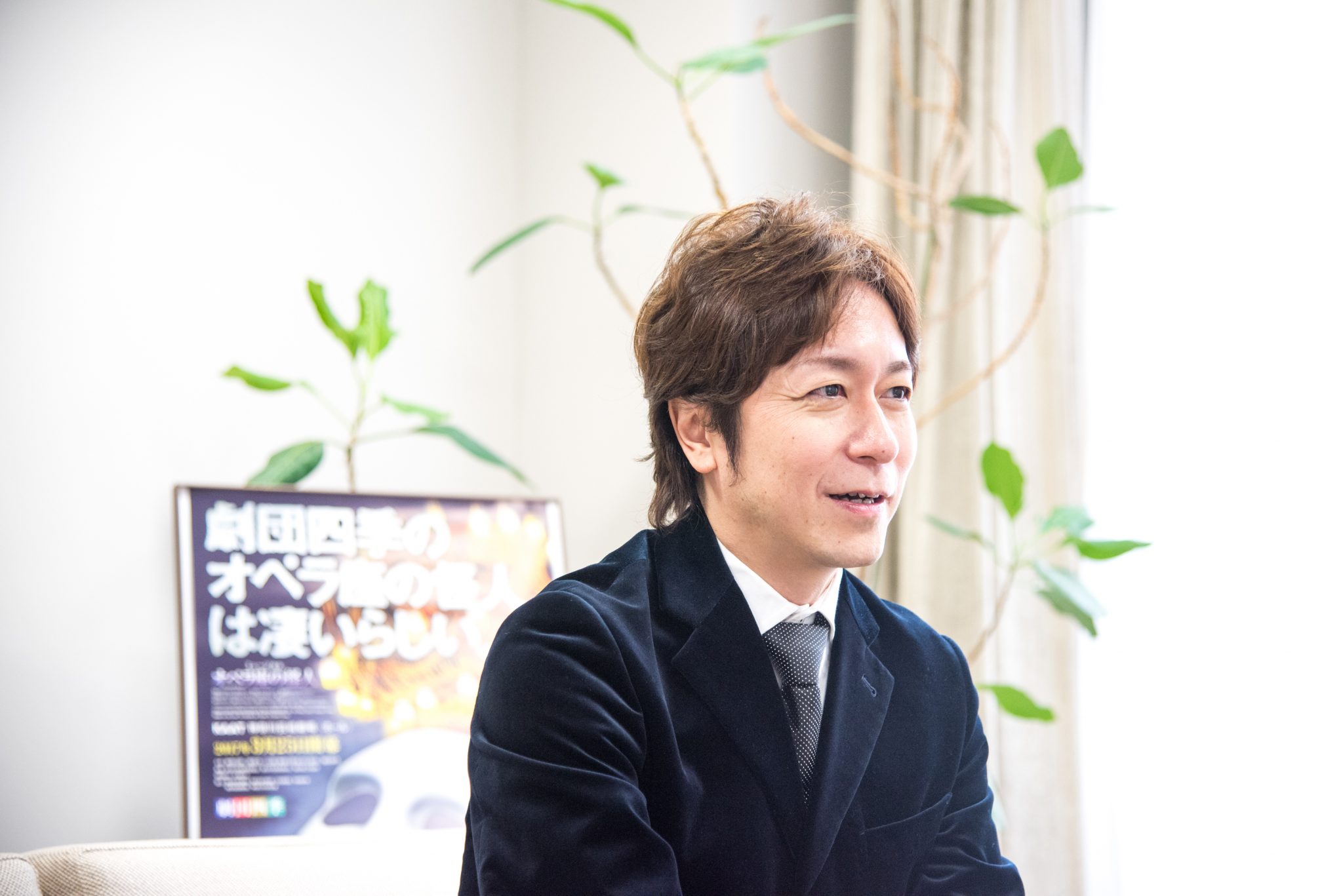
--So, what is your favorite scene in "The Phantom of the Opera"?
Kitazawa : First of all, the beginning. After the prologue, the story changes to a rehearsal scene for the opera "Hannibal," in which the prima donna Carlotta suddenly starts singing a cadenza. The song makes you wonder, "What? Is the opera starting?" That introduction is a highlight.
--What other scenes were most memorable to you?
Kitazawa : Personally, the scene that left the deepest impression on me was the one in the manager's office. Christine is taken by the Phantom and receives a threatening letter. The manager, Carlotta, and Raoul all have their own feelings and thoughts, and the septet sings "Prima Donna." This song is very technical, and the finale is overwhelmingly powerful. It was this number that got me hooked on "The Phantom of the Opera" as an audience member.
-So, what do you think about Raoul, played by Kitazawa-san?
Kitazawa : Raoul has everything: status, money, popularity, and has lived his life without any complexes. He is the person who leads Christina towards the light. I think Christine senses a ray of hope in him and is drawn to him. As the story progresses from Act 1 to Act 2, his attitude towards Christine also changes, so I hope you will pay attention to how Christine's feelings turn towards him. I think you will be able to enjoy the story more deeply by imagining the love triangle and the emotional movements of each character.
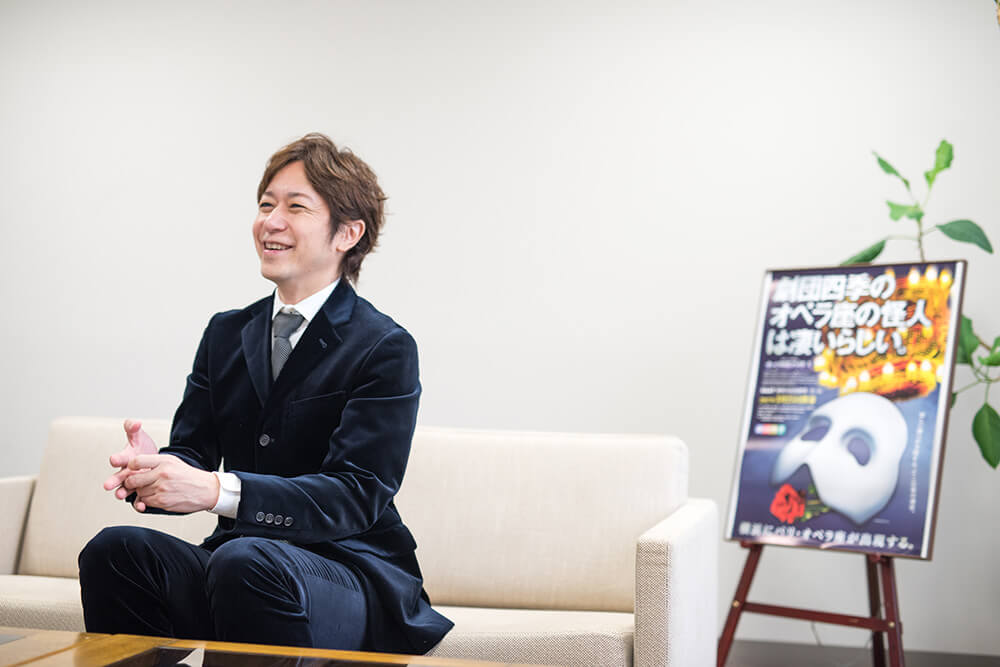
--After hearing your story, I'm even more excited for the performance starting in March next year.
Kitazawa : There is a great sense of excitement within the troupe. The area around the venue, KAAT Kanagawa Arts Theatre, is a popular area for concerts and plays, so we are very happy to be able to perform there. I have heard that KAAT Kanagawa Arts Theatre is a very beautiful theater, and Yokohama has had a strong cultural scent since ancient times, and the audience is very discerning. And since our headquarters for the Shiki Theatre Company is also in Yokohama (Azamino, Aoba Ward), we have a strong attachment to this city. All of the troupe members are very motivated now that we cannot show anything embarrassing to the local audience (laughs). For about five months until August, the troupe members will work together to practice so that you can enjoy the best "Phantom of the Opera". Please look forward to the performance!
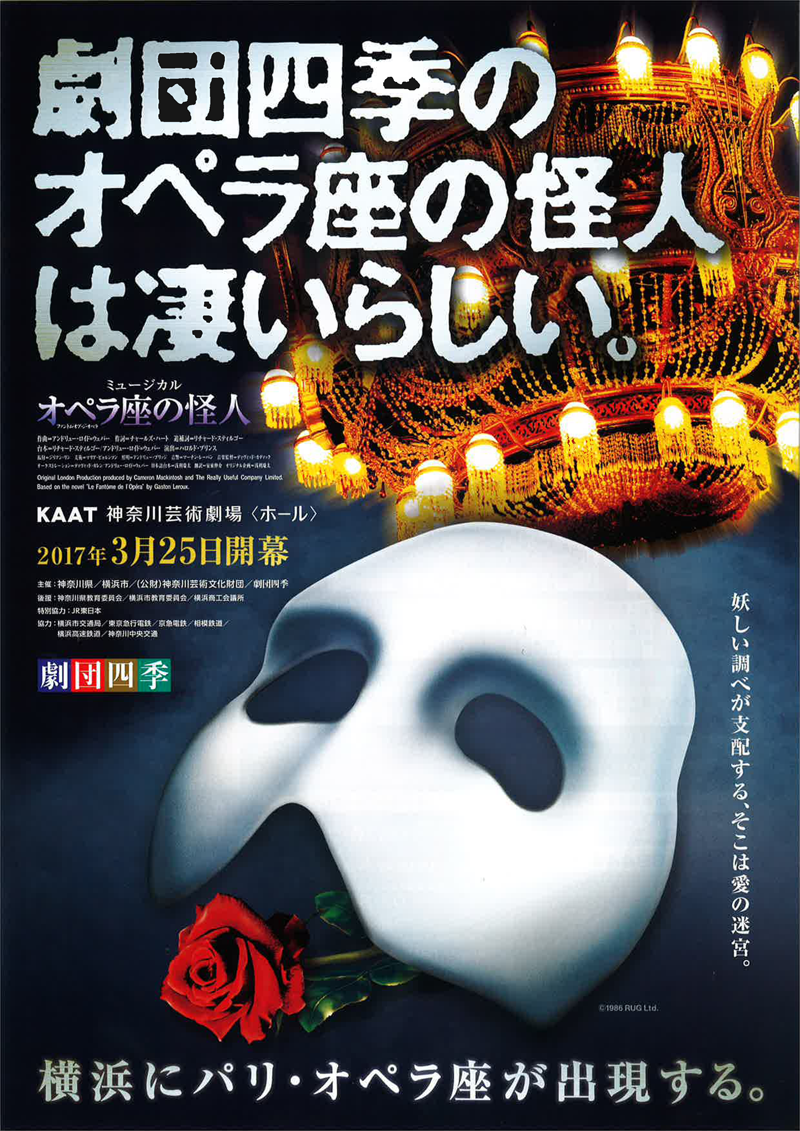
Shiki Theatre Company Musical "The Phantom of the Opera" Yokohama Performance Information
◇Performance period: March 25th (Saturday) 2017 - August
◇Venue: KAAT Kanagawa Arts Theatre <Hall>
(281 Yamashita-cho, Naka-ku, Yokohama, Kanagawa Prefecture)
◇First period sales schedule: < Performances from March 25th (Sat) to June 30th (Fri) >
Sunday, November 20th, 10pm
( Advance reservations for Shiki no Kai members: from Saturday, November 12th)
◇Price: S seats 10,000 yen (10,800 yen including tax) / Side S seats 10,000 yen (10,800 yen including tax)
A seats 8,000 yen (8,640 yen including tax) / Side A seats 8,000 yen (8,640 yen including tax)
B seats 6,000 yen (6,480 yen including tax) / Side B seats 6,000 yen (6,480 yen including tax)
C seat 3,000 yen (tax included 3,240 yen)
Standing room with side chairs: 3,000 yen (3,240 yen including tax)
* Shiki no Kai membership fee:
S seats 9,000 yen (9,720 yen including tax) / Side S seats 9,000 yen (9,720 yen including tax)
◇How to make a reservation: ・Online reservation SHIKI ON-LINE TICKET http://489444.com
(24-hour reception. However, sales start at 10:00 a.m. on the first day.)
・Telephone reservations: Shiki Theatre Company Reservation Center 0120-489444 (10:00 am - 6:00 pm) and others
・Direct purchase at each Shiki Theatre Company's dedicated theater (excluding Jiyugeki Theater)
Ticket Pia, Ticket Kanagawa, etc.
